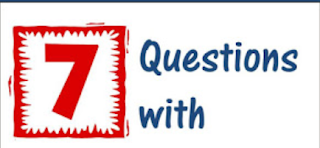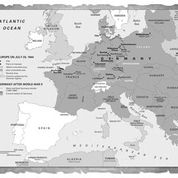Tim Robinson is a third generation Floridian, his grandfather having taken up a 100 acre homestead on Cape Canaveral in 1924. It was his grandfather and father who instilled in him a love for everything Florida. Tim grew up in West Palm Beach, halfway between saltwater Lake Worth and freshwater Lake Mangonia, where he spent his childhood and youth traipsing through the woods or biking over to the beach or taking in the wonders of Florida in some fashion or another. He lives with his wife, Connie, on a small farm in Indiantown, Florida. Three of his books have won the Florida Historical Society's Best Fiction award. For more information: http://www.atropicalfrontier.com/the-author.html
Instead of the traditional & Questions, Mr. Robinson is allowing us to publish his 2018 acceptance speech for the FHS' Best Fiction Award for the book The Indian Fighter.
A long time ago, back in 2001, before it ever occurred to me to write a novel, I had an idea to write another book. It would be a comprehensive manual of history, telling the stories of the first pioneers of Southeast Florida, and it would be titled, “A Tropical Frontier: Pioneers and Settlers of Southeast Florida.” One of the reasons for writing this book was that, as I read many other accounts of early Southeast Florida, I got the impression that someone, a more casual reader, might come to the conclusion that Henry Flagler (Flagler is the man who brought railroads to the east coast of Florida and played a huge role in Florida's development.) was the first person to step foot on Florida soil. Yes, I had developed a grudge; and at no fault of Mr. Flagler, I should admit.
It gnawed at me, however. I wanted those other stories told, the stories of those men and women who left the comforts of civilization and set off into the unknown, to become pioneers, those hearty souls that would not allow others to lead the way, those who hadn’t the patience to sit around and wait for a train to take them there.
So, you might find it surprising to hear that I am wondering if I should thank Henry Flagler, though not only for “giving” me the idea to write that book.
It starts with my great uncle, Ernest Robinson, who, after serving in the First World War as a captain in the Corps of Engineers, took a job on the FEC (Florida East Coast) Railway as a “road engineer,” his job to make sure the tracks stayed in such a condition that no trains would run off of them.
Yes, if it were not for the FEC, and thus Henry Flagler, I do not know if I would have grown up a Florida boy at all, much less be standing here right now.
People ask me. Tim, are you a native Floridian? To answer that, we must go back to Uncle Ernest. Earlier, he had paid to put his younger brother, my grandfather, Frank Robinson, through college, and in 1924 he invited him and his wife, my grandmother, to come down from their home in Missouri to Florida so that they could, together, take up homesteads on Cape Canaveral. They did not live there real long, but long enough to receive their land patents and, more importantly, for my grandfather to establish roots here in Florida. So, for making it less likely that I would grow up in Missouri – although I am sure it is a very nice place – thank you, Uncle Ernest. But I was not yet out of the woods.
Granddad and Grandmother did remain here in Florida where he worked as an engineer for several companies, including the E. F. Powers Construction Company, digging ditches and canals, building many of the early roads that we drive on today, and other projects, such as setting the foundation for Lake Worth’s first electric generator, designing and building airports in Zephyrhills and Tampa, reconstruction of the Pinecastle Airfield at Orlando, repaving runways and aprons at McDill Field in Tampa, and finally, building the first “rocket pad” and air strip for “skidding in the first missiles” at Cape Canaveral. Later, there were smaller jobs with the Robinson Construction Company, such as the excavation of Pelican Lake in Juno Beach. Although my grandparents traveled frequently for his work and lived many places, all over the world, in fact, they always returned home, to Florida. So, thank you, Granddad and Grandmother.
My father, who grew up in Tampa, Tallahassee, Jacksonville, and West Palm Beach, spent his youth riding around the old roads of Florida with Granddad. My own childhood was filled with stories as we drove around Florida, sometimes with Granddad along, of things they had seen and done. I recall names like Roy Shaw and Booker T. Hooker. Regardless, my father, Dick Robinson, went off to Georgia Tech, then to Seminary in Louisville, Kentucky where he met my mother. Hers was a close knit family, and my mother did not wish to leave home; so, sadly, a Kentucky boy is what it appeared I would be.
But fortune looked down and, as a newly minted minister of music, my parents were sent off to a promising job in Panama City. Things were looking better, but, soon after, they took another job in Jefferson, Georgia, where my mother became pregnant with me. Once again, things were looking bad, and on a cold, snowy night in Georgia I was born.
Yes, there are those in my family – my brother – who insist on full disclosure, that I make it clear to all that I was not born in Florida, but in Georgia, which would make me not a “Florida Boy,” but, as Tom Gaskins might say, a “Goober Grabber.”
Thankfully, my father soon took another job, and, on my twenty-eighth day, we moved to Florida, West Palm Beach, where I grew up. So, while it is true that I am not a native, I did spend my entire childhood yanking sand spurs from between my toes and spewing salt water from my lungs. Thank you, Pop, for moving back to Florida. And, more importantly, thank you, Mom, for letting him do it.
I also wish to thank the person most important to the writing not only of this book, “The Indian Fighter,” but every thing I do, my lovely wife, Connie, or “Mrs. Twain” as I sometimes refer to her, without whom I suspect I would never have written so much as a word, much less a novel worthy of an award bearing the name Patrick D. Smith.






















